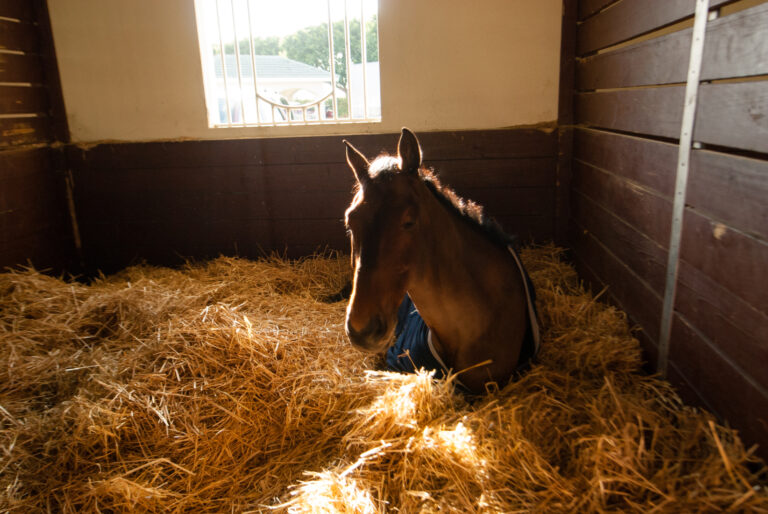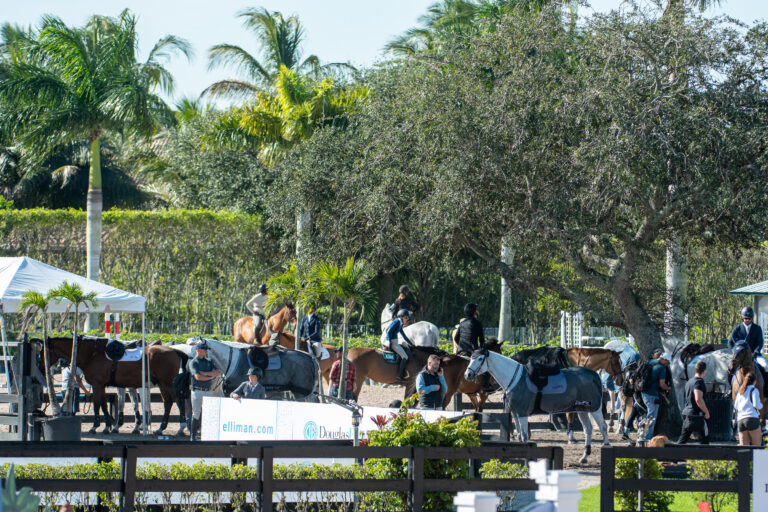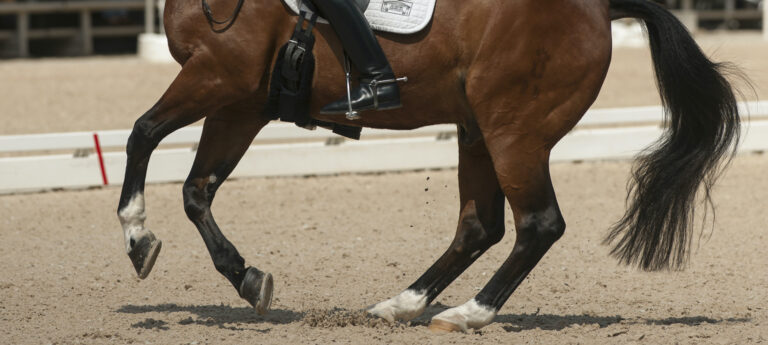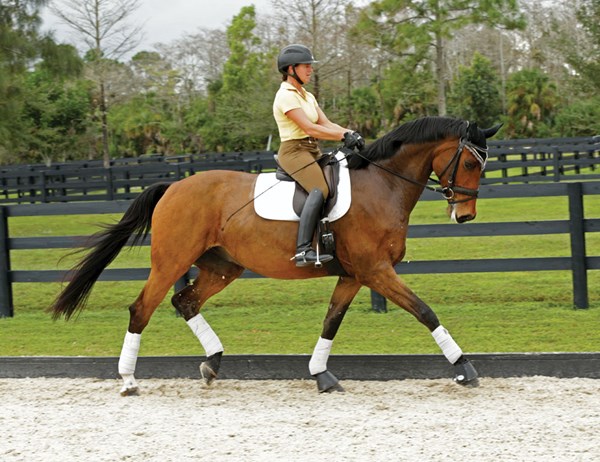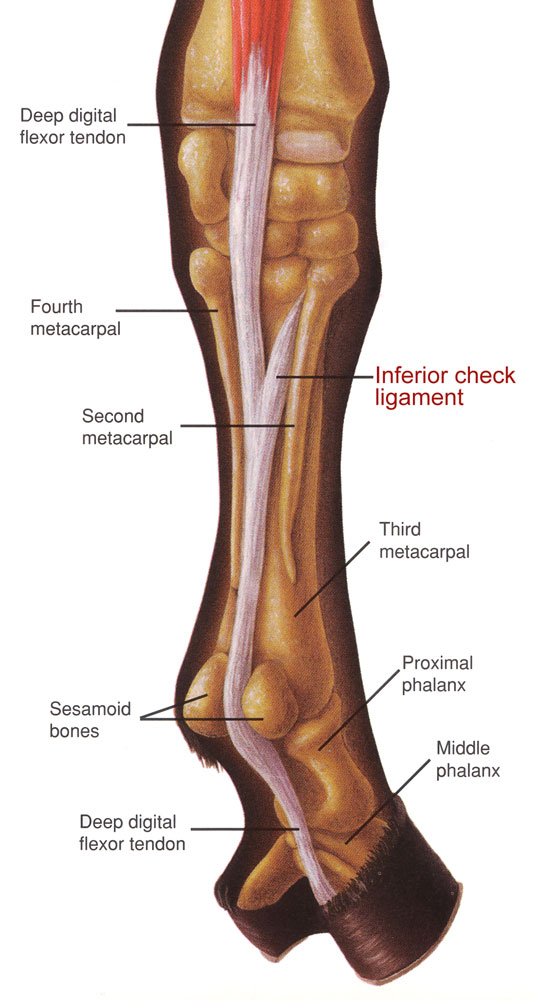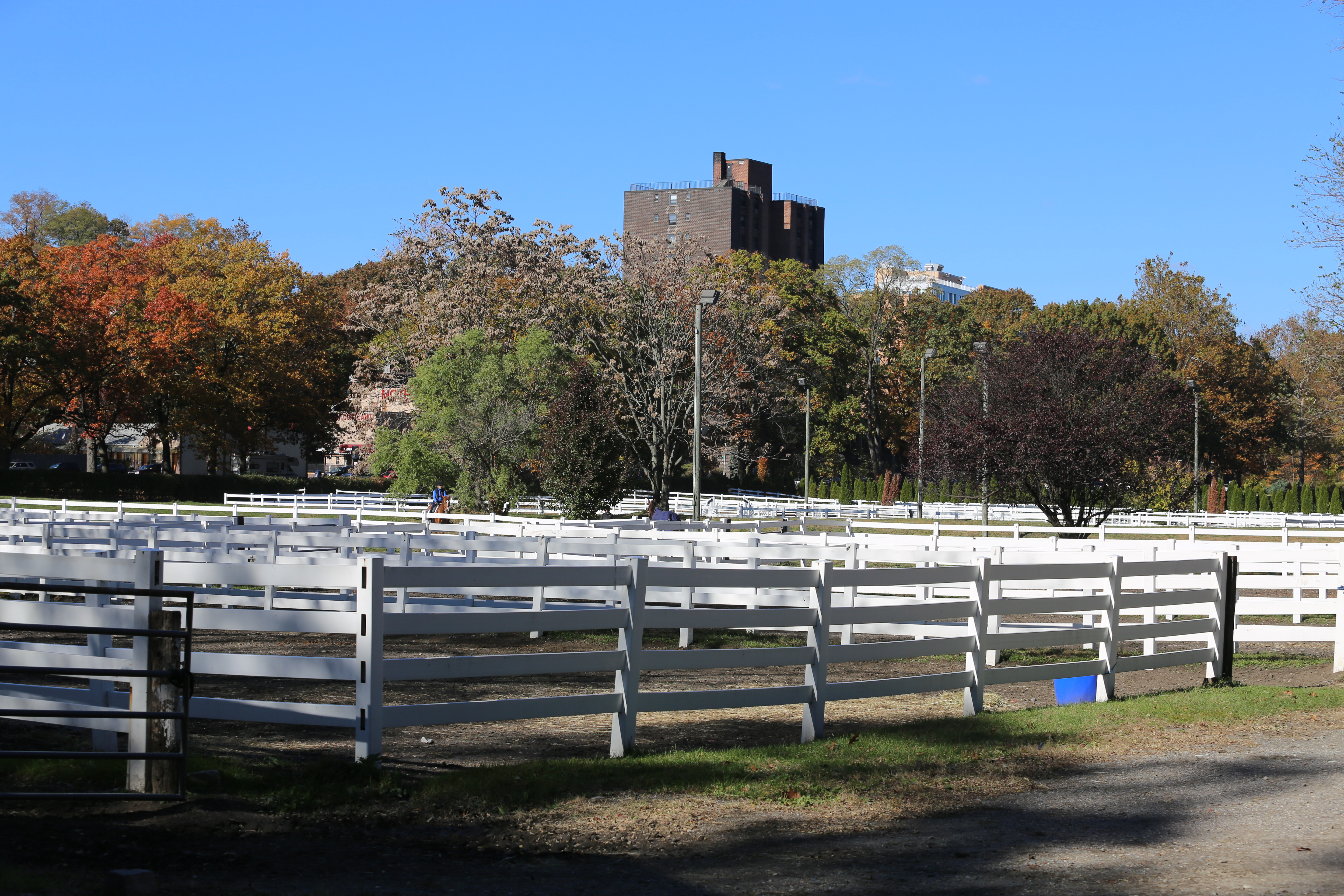
Dressage riders in New York City can have the best of both worlds—city life, and a horse on a farm—riding at Riverdale Stables in the Bronx. While for many people, thinking of the Bronx conjures images of apartment buildings and bodegas, busy city streets, hip-hop music and Yankee Stadium, the leafy Riverdale Stables is located between the Hudson River and Van Cortland Park, the third-largest park in New York City, which encompasses more than 1,000 acres. The stables are located within the park, which also has a forest, large freshwater lake, nationally renowned cross-country running course, a public swimming pool and two golf courses.
Canadian Olympic dressage rider Ashley Holzer, who earned her U.S. citizenship over the summer of 2016, has been based at Riverdale since 1994, with winters spent in Wellington, Florida. Her successful business has drawn dressage riders from around the U.S. and Canada to train with her and offers a convenient location for city-dwelling horse lovers to indulge their passion for horses without traveling very far.
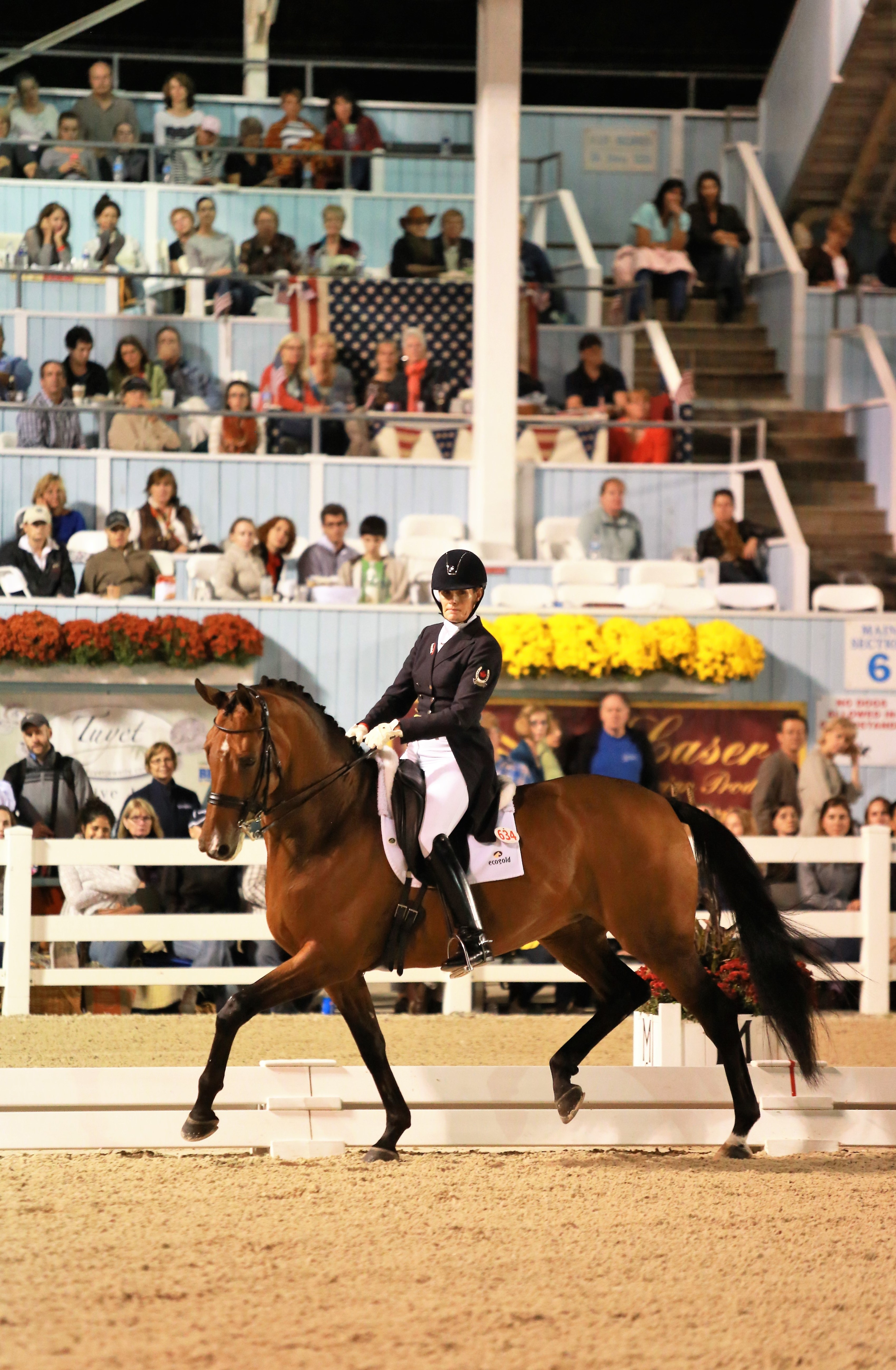
Holzer used to keep her horses in New Jersey, but unpredictable traffic on the highways and at the Lincoln and Holland Tunnels and the George Washington Bridge meant the one-hour drive could easily turn into two or three. From her home on the Upper West Side, Holzer can be at Riverdale in about 15 minutes, giving her more time to spend at home with her children, as well as riding.
“I really chose to ride at Riverdale because of my family life: I have two kids, one who’s still at school in the city. I live there and my husband works there. It’s allowed me to have a life! If you’re riding eight horses a day, it was impossible to deal with the commute.”
Holzer grew up in Toronto, Ontario, riding at Sunnybrook Stables, also located in a large urban park, so it’s a natural choice for her to keep her horses in the city.
“I think it takes a special person because not everybody in the horse world is a city person,” she said. “Sometimes Manhattan can be overwhelming for people, and some people love that they can lead a city a life, too. I grew up in the city and my parents bought a farm when I was 14 or 15, but I actually found it a little lonely out on a farm by myself.” She added, “One great thing about going to Wellington is it’s similar to the city life that I enjoy.”
While the cost of rent is high and city traffic can be infuriating, Hannah Beaulieu, 20, and Lindsay Kellock, 26, who share an apartment near the stables, enjoy the opportunity to experience city life while they’re pursuing their riding goals at Riverdale.
A Toronto native, Kellock has been working with Holzer for six years and is now running the dressage training stables at Riverdale. She also manages Holzer’s barn and is her assistant trainer in Florida during the winter.
Kellock was a successful Young Rider and spent the past year competing the 15-year-old Oldenburg stallion Royal Prinz in the Small Tour, with wins in 2016 at Tryon, North Carolina, and Saugerties, New York.
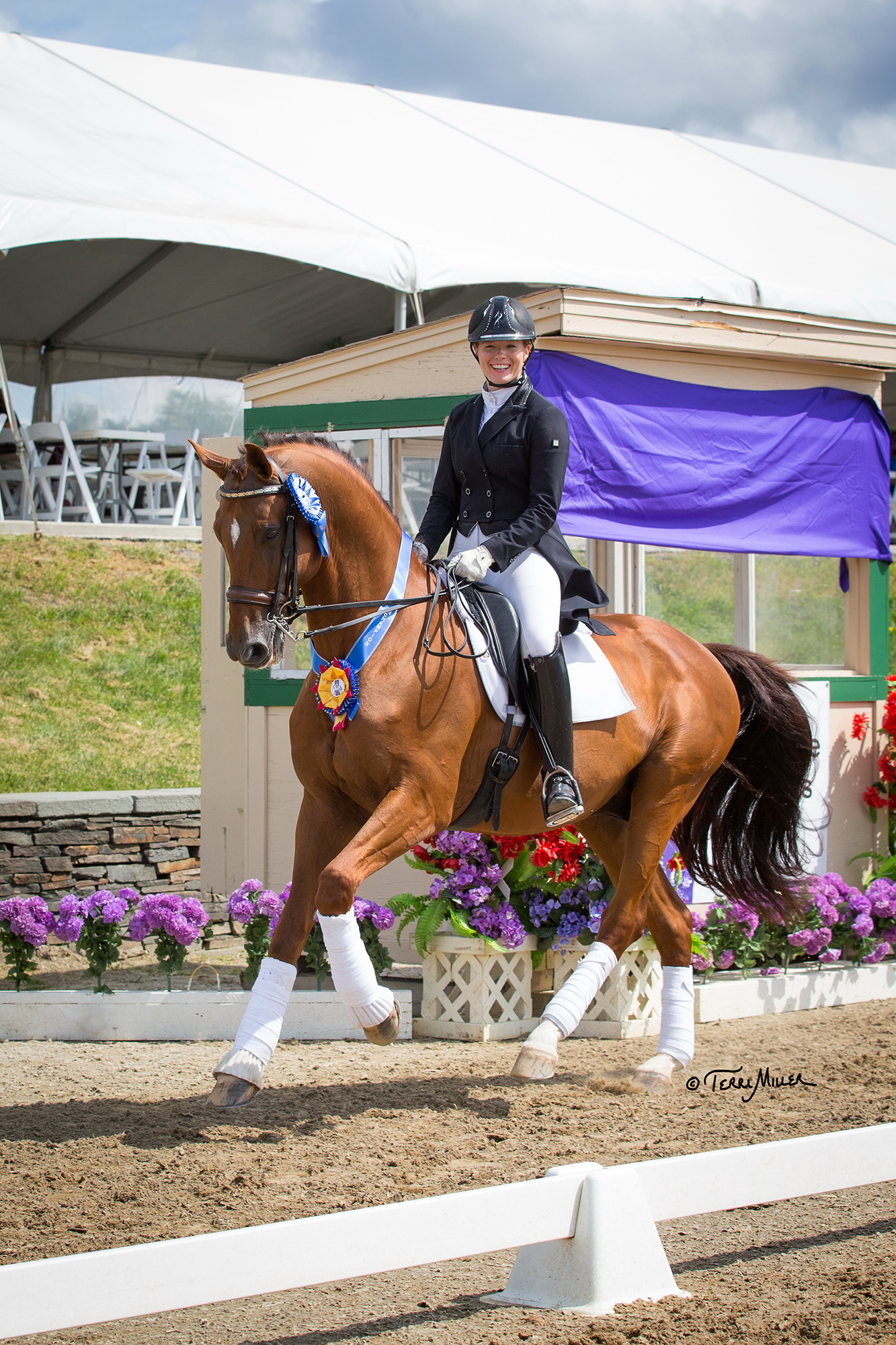
Kellock and Beaulieu share an apartment in the Riverdale neighborhood and Kellock said she enjoys being able to spend time out on the town, enjoying the nightlife in New York City as well as easy access to the barn.
Beaulieu has been working for Holzer for three years. She grew up in the countryside in British Columbia and city life was new to her. “It’s been cool living so close to Manhattan and still getting to ride,” she said. “We live in an apartment, which I’d never lived in before, and it’s a quick drive into Manhattan.”
Beaulieu has a 7-year-old horse who she hopes to move up to Prix St. Georges in her last year of Young Riders, and she also leased a horse this season that gave her the chance to compete in the Under-25 Grand Prix. “The opportunity to work with Ashley has been incredible,” she said. “When I came here, I’d done my first year of FEI Juniors, and I had just competed at the NAJYRC in Kentucky. I was supposed to come here for two weeks, and I never left!”
Urban Horsekeeping
Limited space is obviously the biggest difference between keeping horses in or near a city versus in the countryside, and Holzer says she sometimes feels a twinge of jealousy when she drives past countryside farms with large, rolling green fields. But the stables in Riverdale have ample turnout and space for lots of horses.
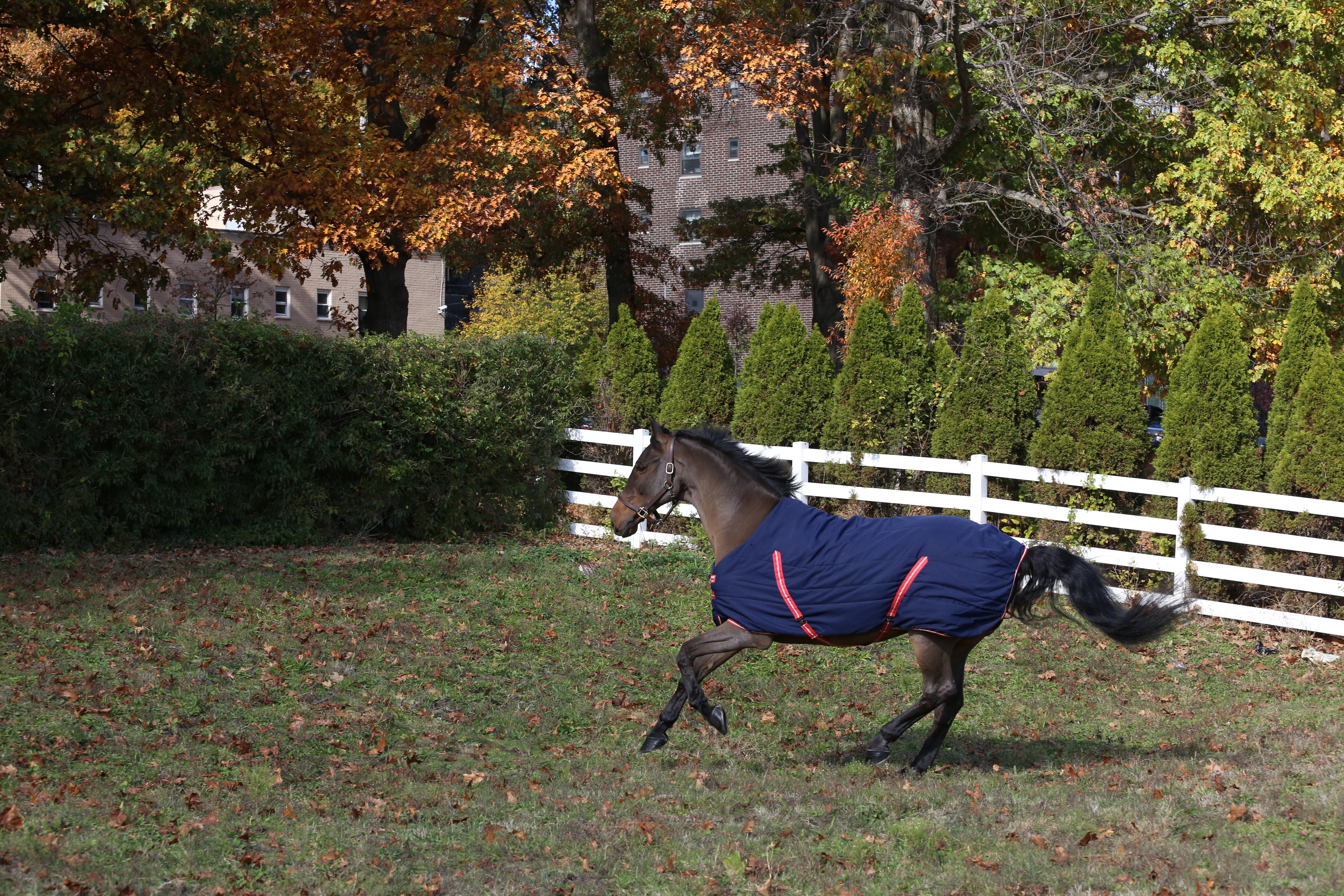
In addition to Holzer’s dressage barn is a hunter/jumper operation and a small barn for police horses with about 80 stalls in total. Facilities include an outdoor Olympic-sized dressage arena, lesson rings, jumping rings, a derby field and an indoor arena. There are even trails through the park. The turnout and lesson schedule must be planned carefully, but there’s generally room for everyone to do what they need to do.
To counteract the negative effects of living in confinement, it is important that city-dwelling horses receive adequate turnout and a diet of quality hay and grain as well as access to clean, fresh water and plenty of roughage to mimic the grazing habits of horses in their natural state. A horse on limited acreage also needs more structured exercise to make up for lack of movement and prevent both boredom and colic since horses need to move around to keep their gut functioning properly.
Impaction colic from lack of moving around can be a problem when horses are not grazing since they also consume water when they eat grass. “Keeping your horse moving is important,” says veterinarian Emily Olson, who used to work with B.W. Furlong and Associates in Oldwick, New Jersey, and has treated horses at the stables in Riverdale. “If you don’t have pastures, you can turn horses out in an arena, hand-walk and ride them, but none of these are the same as turnout.”
Kellock said that their horses go out in the paddock every day starting at 7a.m. and work five days a week under saddle. One day a week they get completely off and go in the paddock for two to three hours. On their other easy day they will longe or hack. “It’s hard for us to ride on weekends because the riding school is very busy during that time,” she added. “You definitely have to be organized.”
A reliable supply of feed and grain from Upstate New York helps keep their horses happy and healthy since colic can also result from sudden dietary changes. Feed and shavings suppliers maintain a consistent delivery schedule—which is important since there’s not a farm supply around the corner—as well as consistent quality of feed.
While neighbors in luxury city apartments might enjoy the sight of horses grazing in their paddocks, the smell of manure and the buzzing of flies are frowned upon. Generally, barns in urban and suburban areas must have manure removed professionally, collecting it in dumpsters and then having it shipped away. The carriage-horse stables in Midtown Manhattan, for example, must remove used bedding from the premises every few days. Riverdale’s stables, which are nearby but not immediately adjacent to residential buildings, has two shipping containers and two dumpsters set up for efficient storage and weekly removal of manure and used bedding.
Holzer said that thanks to their location near several major highways and their proximity to horsey Westchester County, New York, and the horse country of New Jersey and Connecticut, they have good access to veterinary and farrier care. They use longtime Olympic team vets B.W. Furlong and Associates, in Oldwick as well as Dr. Kit Miller from Connecticut, and their farrier is Mike Phillips, who lives in Bedford, New York. These vets and farrier are also in Wellington in the winter, so their program is consistent year-round.
“We’re five minutes from Highway 87 and just off the Henry Hudson Parkway,” said Holzer. “From Greenwich, Connecticut, in good traffic it’s only half an hour. We’re not miles into the deep city.” While traffic anywhere in the city can get gnarly, the stable facilities do have room for parking trailers and enough space for an 18-wheeler to turn around.
Beaulieu also pointed out that online shopping has made it convenient to get whatever they need, whenever they need it. “It’s so convenient—we place an [online] order and it gets here the next day. There’s also a tack shop in Manhattan that I’ve never been to and there are a few local tack shops in Bedford.”
Horses for Everyone
One might assume that Holzer maintains an exclusive cadre of upper-level riders at her barn, but she said the stables are welcoming to riders of all levels. “We are a public riding facility, and you never know who’s watching that might say, ‘One day I’d like to do this,’ and end up being the next Olympian!” she said. “Sometimes we’re schooling FEI horses in the arena with beginners. That also mimics the horse show atmosphere to some degree. You never go to a show and say, ‘I own the warm-up ring!’ It gets horses and riders used to having to deal with that.”
Holzer and her husband, Rusty, leased the stables from the city for many years, but recently Scott Turner took over the lease. She said that Turner, who runs the hunter/jumper stable, is good about giving the dressage riders a lesson schedule so they can plan their schedule accordingly. “I think it takes a good working relationship to make it work. Sometimes I might have a stallion that needs the indoor to himself and we make sure that’s on the schedule, too. We also have lots of room: the huge jumping ring, the derby field. We even have beautiful trails in the park.”
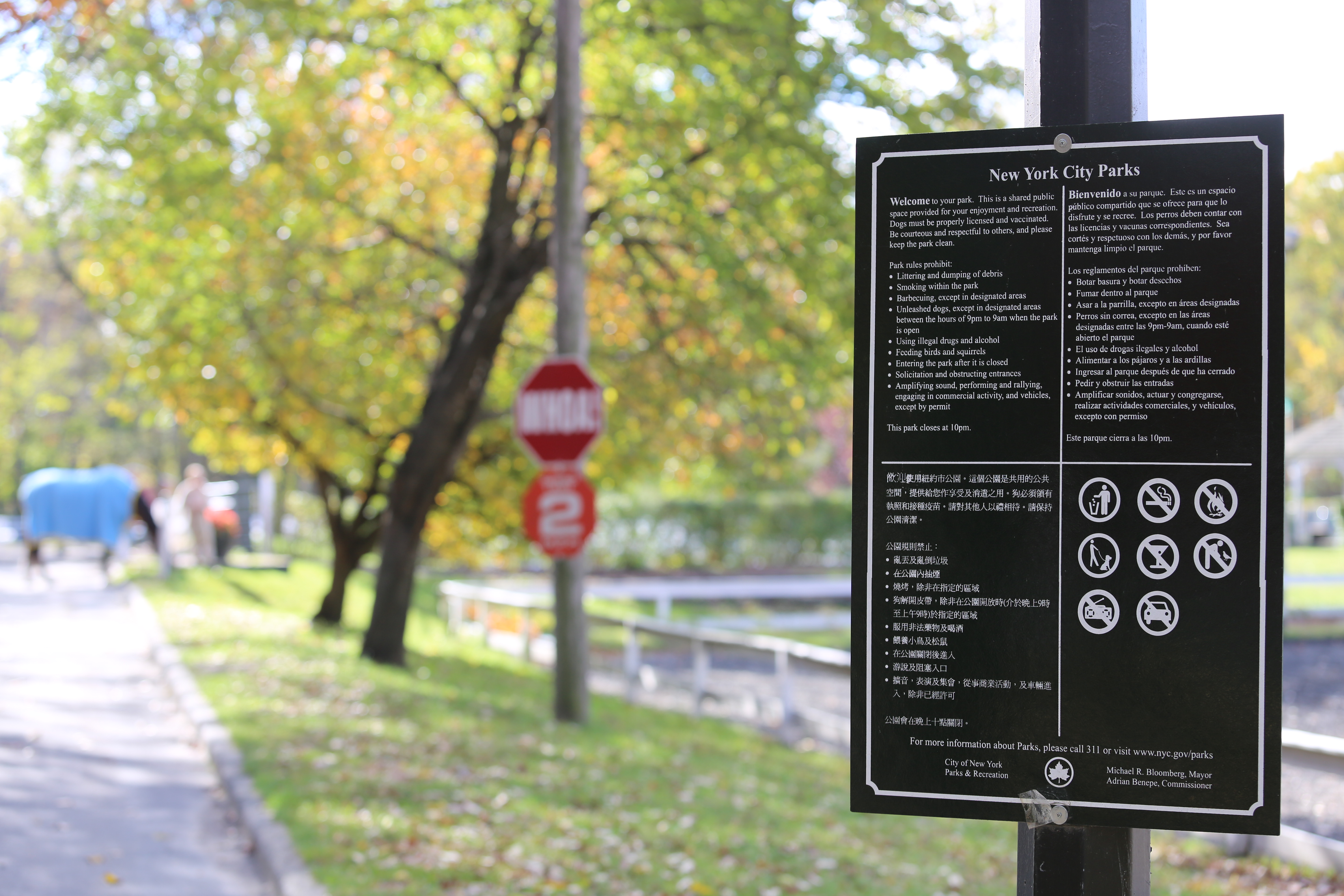
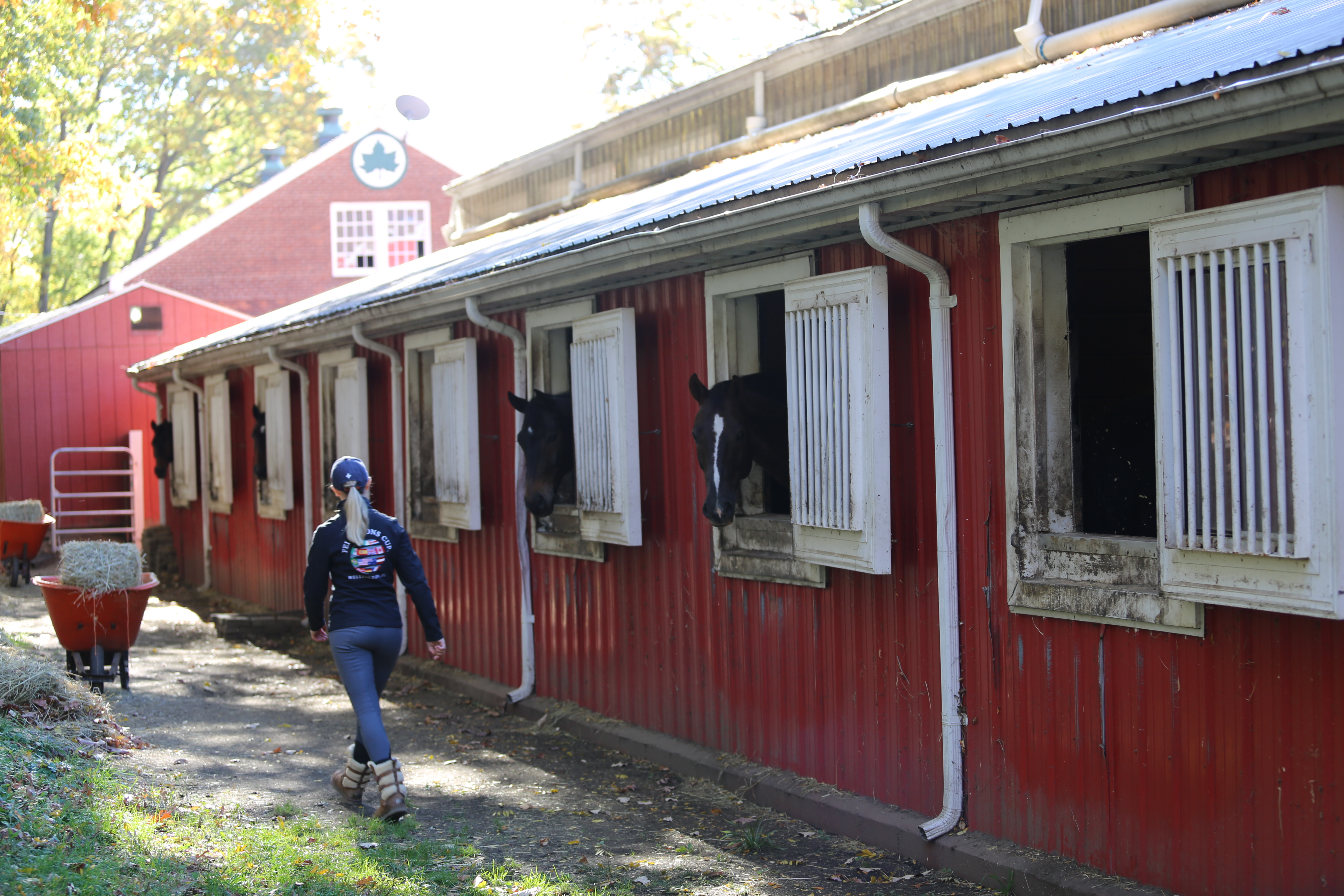
Beaulieu said, “Sometimes we have to plan ahead and manage our time according to the weather with all the lessons that go on here, but it works pretty well. We mix well with the hunter/jumper crowd, but we go in the dressage ring and they go in their rings and there’s not a lot of overlap.”
A Place for Learning
Working for Holzer has given Kellock the opportunity to learn the business from the ground up and she said the support has been invaluable as she makes the step from amateur to professional. “It was a big transition from Young Riders and becoming a professional is another huge step,” she said. “Ashley is always very supportive. She is an incredible mentor and coach and continues to teach me new things every day.”
Holzer has a proven track record for producing successful professionals, including Denielle Gallagher LeGriffon, originally from New Brunswick, Canada, who started out grooming for Holzer, became her assistant trainer and eventually took over Ramapo Stables in New Jersey. LeGriffon and her husband, show jumper Bertrand LeGriffon, also relocate to Wellington in the winter. Canadian Olympian Jackie Brooks is also a longtime student of Holzer.
“I think that I’ve always been a big believer in educating people and then watching them grow,” said Holzer. “I believe that as a student, you don’t always see the entire aspect of an equine business, but at this stable you really do see that there’s billing and lessons and shavings deliveries. There’s a lot of planning that goes into keeping things running. So the great thing about this facility is it teaches people who work with me to be organized and shows them the importance of organized vendors.”
Holzer also makes a point of keeping them involved in every aspect of her business. “I always have my girls watching me ride and I watch them ride, and we’re always commenting to each other and watching how things are done.”
She compared her business model to a teaching hospital, where everyone helps each other out and encourages constant learning. “Even when I’m training a horse, I might ask Lindsay to hop on and see how something feels. We’re very big on videoing each other, commenting and watching the video together later. I also help them when they’re teaching in front of me. We have a constant, good line of communication, where we’re always getting feedback from each other, and I think that’s how you have to be to stay current in this sport. If you just ride in circles and don’t take criticism, you won’t grow. It’s also helpful to have another perspective. I might be trying to figure something out and Hannah might notice that my horse does something to the left, but not to the right. We even have the vets watch the horses train so they know what is normal for the horses. We’re lucky we have vets and blacksmiths who will work with us that way.”
When it comes to the clients at Riverdale, Holzer likes that people from all walks of equestrian life come through the stables, which are located in walking distance of a subway station and a city bus stop for New Yorkers who don’t have access to a car. And, of course, there are always taxis and Uber.
“I think it really gives people who might not otherwise have the opportunity to ride the chance to get involved with horses: true amateurs who get to ride after work, kids who ride after school. How lucky that they get out of school and half an hour later they can be on their horse and training? It gives them an opportunity they might not otherwise have. That’s also what Sunnybrook gave me in Toronto. I think people are lucky to be able to experience both worlds. And as dressage riders, we train in the same 20-by-60 ring here in New York City that we compete in at the Olympics. We’re able to recreate exactly what we need.”
Beaulieu said that she thinks more city dwellers should get involved with horses. “It’s a great facility and there’s something for every age and experience level here. We’re lucky.”
The article first appeared in the July 2017 issue of Dressage Today magazine.


